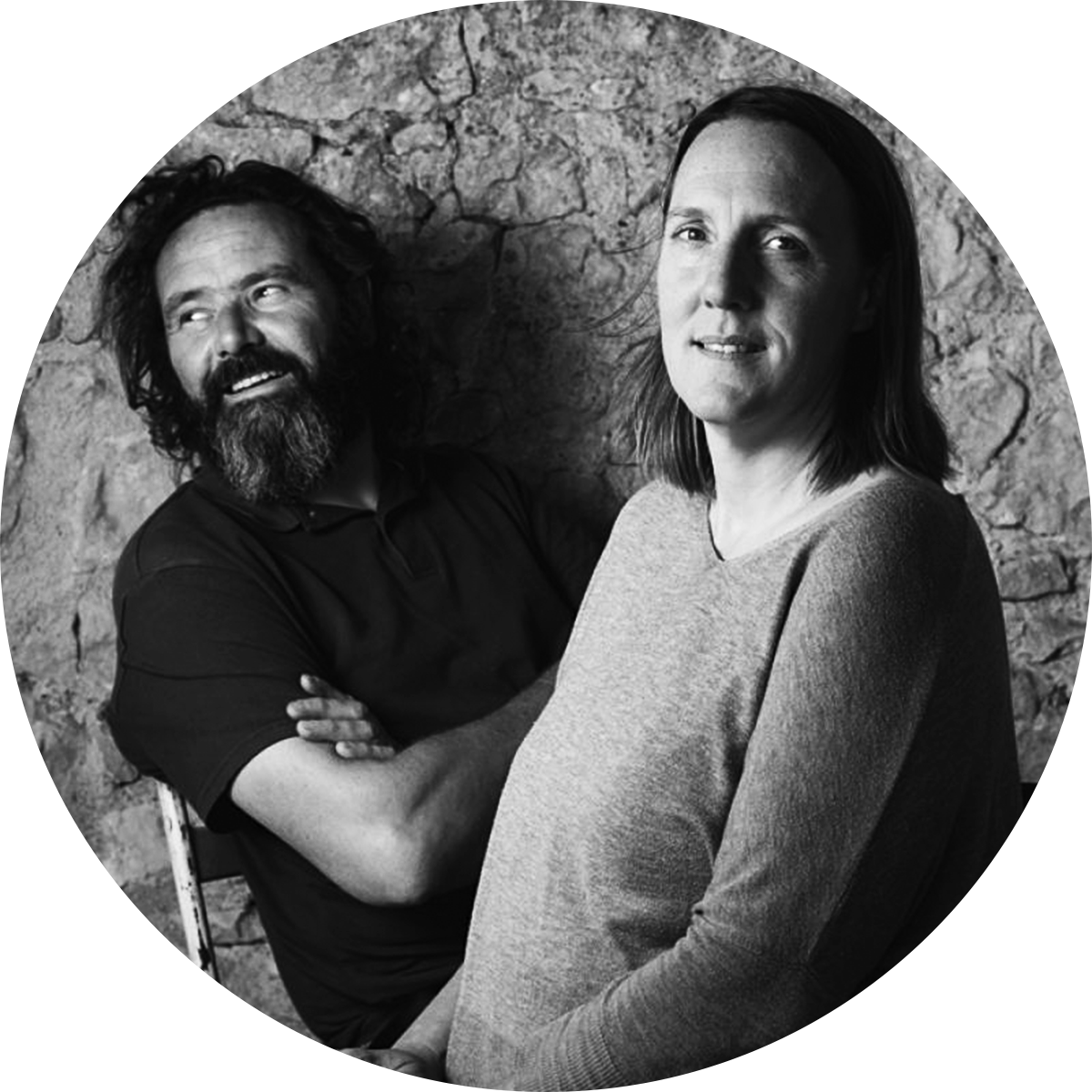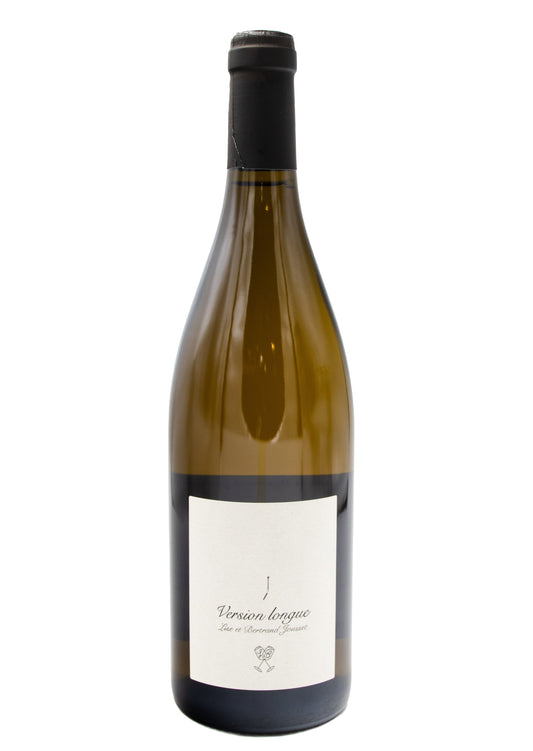DOMAINE JOUSSET
LISE & BERTRAND JOUSSET
Montlouis-sur-Loire, Loire Valley, France
Both from the Loire Valley, Lise and Bertrand have been hailed as one of the rising stars in the Loire Valley and the natural wine world. Lise started working in restaurants, becoming then a sommelier. While Bertrand spent time in the military and then enrolled in a viticulture program. They settled in Montlouis-sur-Loire in 2003 and have been committed to biodynamic viticulture since. After giving up some parcels in the last years due to changing climatic conditions, they now farm 7.5 hectares. The vines range from 30 to 130 years for the oldest vines, with even some franc de pieds! The Jousset’s fundamental and profound respect for nature, led them to exclude herbicides and pesticides to preserve the natural balance that the biological diversity in the vineyards offers. Thanks to them, more young vignerons kept coming to Montlouis (on the left bank of the Loire River opposite Vouvray) - creating a noticeable shift and bringing this appellation into its own, previously considered not much more than Vouvray’s sidekick.
-
Domaine Jousset Peaux a Peaux 2022
Regular price HK$280.00Regular priceUnit price / per -
Domaine Jousset Rose à Lies 2023
Regular price HK$250.00Regular priceUnit price / per -
Domaine Jousset Sur le Fil 2018
Regular price HK$440.00Regular priceUnit price / per -
Jousset En Aparté 2018 - 500ml
Regular price HK$450.00Regular priceUnit price / per -
Domaine Jousset Premier Rendez-Vous Version Longue 2019
Regular price HK$400.00Regular priceUnit price / per
BACKGROUND OF NATURAL WINE IN LOIRE VALLEY
Located in central France, the Loire Valley is renowned for its picturesque vineyards and historic winemaking tradition. Stretching along the longest river in France, the Loire, this region is celebrated for a variety of terroirs and for producing different wines - ranging from crisp whites to elegant reds and sparkling varieties. Popular grapes cultivated here include Chenin Blanc, Sauvignon Blanc, Cabernet Franc, and Melon de Bourgogne.
Organic, Biodynamic and Natural wine. What’s the difference?
To understand this concept and its various ramifications, it is necessary to keep something clear in mind: before the 20th century and the spreading of affordable synthetic fertilisers, all farming was organic. When the shift to the use of synthetics and pesticides happened, it became necessary to diversify traditional organic farming from the new modern farming.
ORGANIC WINE
Simply put, organic farming forbids the use of synthetic fertilisers, synthetic pesticides, herbicides, or genetically modified organisms. The basic requirements are generally specific and engage the farmers not to use any chemical fertilisers and other synthetic products in the vineyard. It does not prevent the vintner from using the conventional winemaking process after harvesting.
BIODYNAMIC WINE
Let’s take organic farming one step further: Biodynamic. The creator of this agricultural system is the Austrian philosopher Rudolf Steiner, who developed the principles of biodynamics in a series of lectures given in 1924 in Germany. Here lies the foundation of true organic wines, with a strict limit in the use of additives, stringent requirements and at the end obtaining a biodynamic certification.
NATURAL WINE
The previous definitions are usually, and rightfully, associated with it, because most natural wine is also organic and/or biodynamic. But not vice versa!
Natural wine is wine in its purest form, simply described as nothing added, nothing taken away, just grapes fermented. No manipulation whatsoever, minimal intervention both in the vineyards and in the winery. Healthy grapes, natural yeast and natural fermentation, with no filtration nor fining. Sounds easy, right? However, making natural wine is unforgiving and it requires a bigger amount of work than conventional wine. To this day, natural wine has no certification yet.










